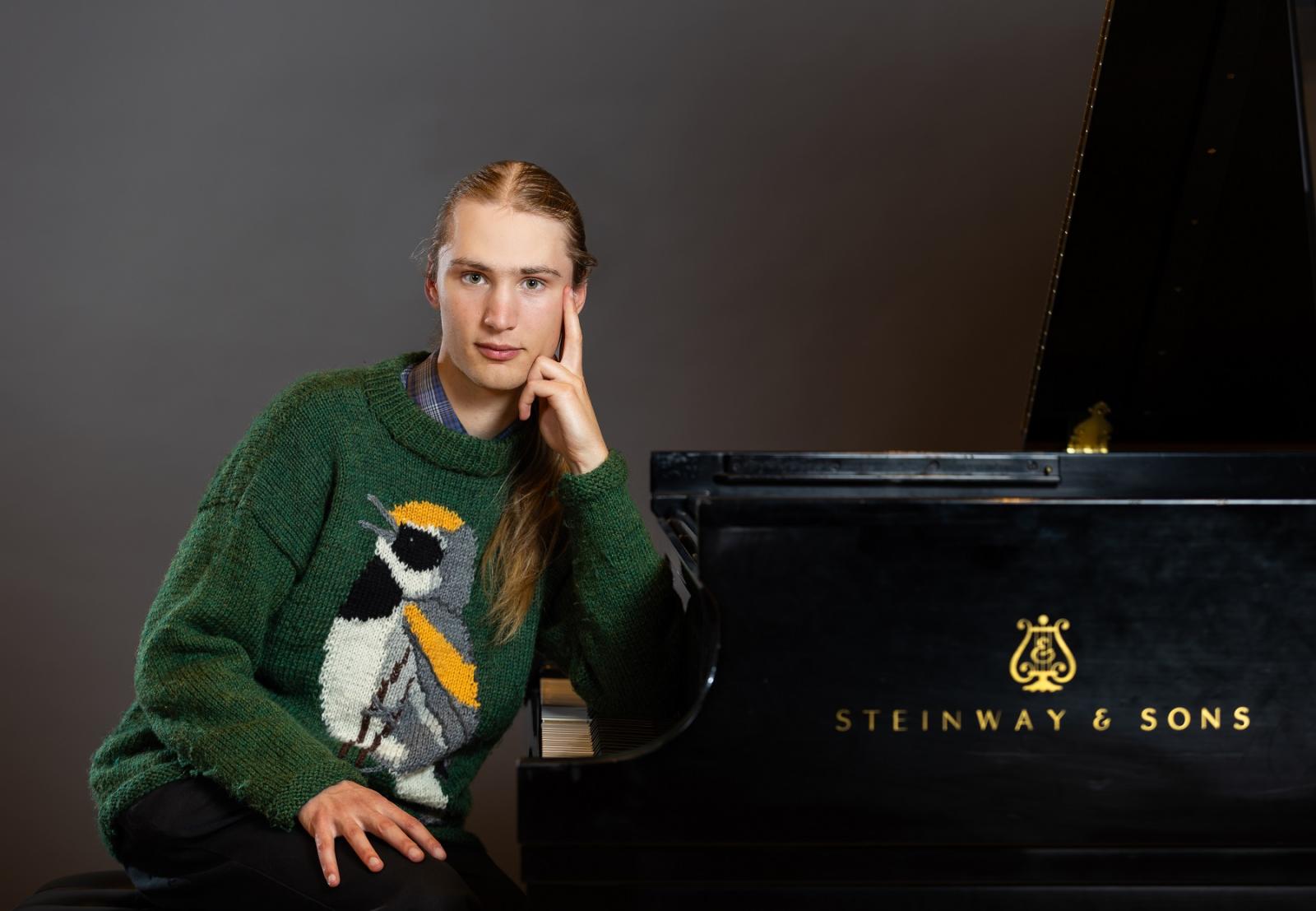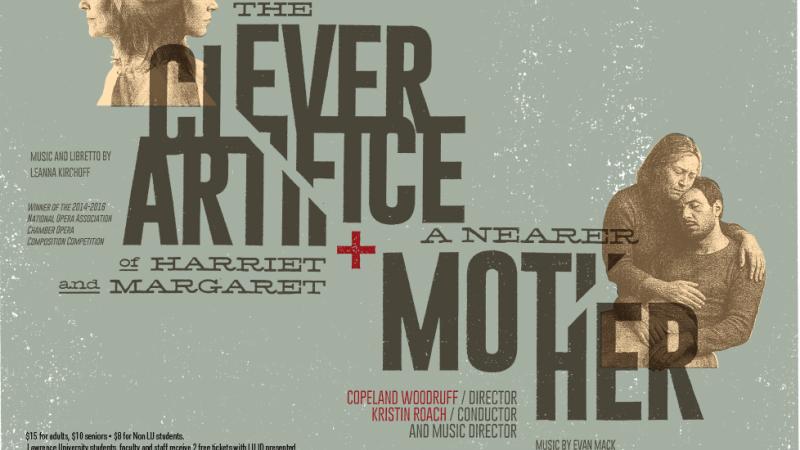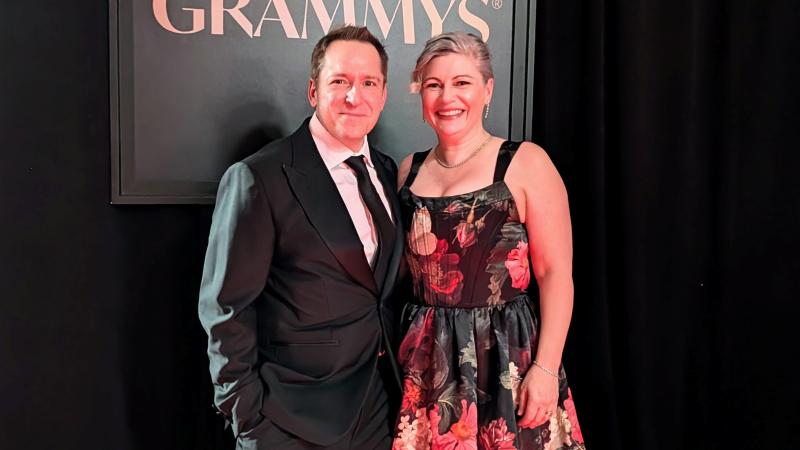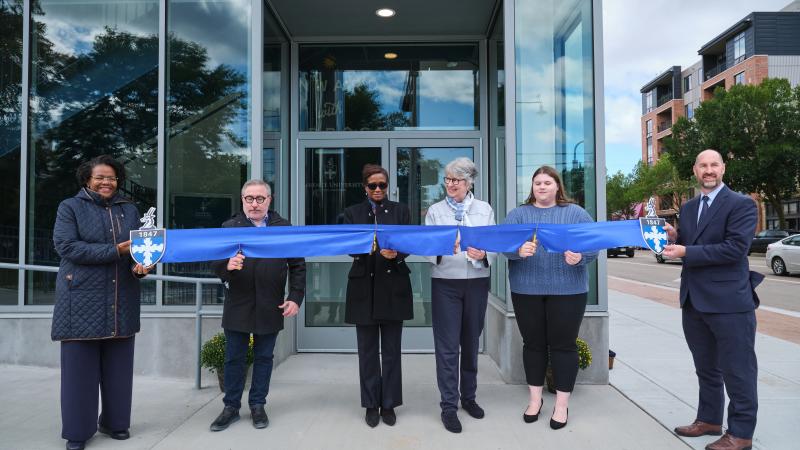Recent graduate Kai Frueh ’25 is an emerging pianist dedicated to contemporary music, with a handful of premieres already under his belt. His Senior Experience looked further back—to the oldest musicians of all: birds.
With three world premieres, “Kai’s Bird Recital” drew on both contemporary musical innovations and the ancient artistry of the natural world. For Frueh, a piano performance major from Corvallis, Oregon, these seemingly distinct passions are deeply intertwined.
“A lot of music is done aurally, and a lot of birding—especially the birding I'm interested in—is also done aurally,” Frueh said. “For both, listening is a huge part, and different approaches to listening is something I think a lot about.”
Frueh conceptualizes the vast variety of bird songs as a “repertoire” in itself. His recital highlighted a wide range of how composers have explored this treasure trove.
Among these are classic examples of bird-inspired music: Mikhail Glinka’s The Lark, arranged for piano by his protégé Mily Balakirev, is a Russian staple, while Olivier Messiaen's Quartet for the End of Time is an early example of the composer’s life-long obsession with birdsong.
Integrate intellectual and musical virtuosity in a supportive community that will empower you to find your musical path.
To heighten the sonic immersion, Frueh took advantage of Harper Hall’s extensive renovations last winter. He utilized the new surround sound system to project bird call recordings from different directions across the room. At one point, he improvised at the piano in response to them.
“During COVID, my brother [Ben Frueh, a Lawrence violin student] and I gave outdoor concerts for our neighbors,” he recalled. “I distinctly remember one time someone telling me they had a much easier time focusing because the performance was in a natural soundscape—the soundscape became part of the pieces that we were performing.”
At Lawrence, Frueh found academic footing for these sentiments. A variety of influences proved influential, many found through musicology coursework and an independent study with Sonja Lynn Downing, associate professor of ethnomusicology. The work of acoustic ecologist R. Murray Schafer, bioacoustician Bernie Krause, alongside the deep listening techniques of composer Pauline Oliveros—widely embraced elsewhere on campus—proved pivotal.
Frueh originally considered an outdoor concert, but piano-moving logistics proved impractical. Indoors, however, he found new creative possibilities: the chance to design tailored soundscapes for each piece, pairing recorded birdsong with its musical reflection.
“The instruments in Quartet for the End of Time imitate the common nightingale and Eurasian blackbird—European species which we wouldn't be able to hear live,” he explained. “So, instead I've been able to pull recordings of those and play those through the surround sound.”
Several world premieres took this approach even further, each with a unique relationship to birds and place.
Frueh was joined by his brother Ben for Thomas Meinzen’s Headland (2024), written during a residency at Sitka Center for Arts and Ecology on the Oregon coast. It features field recordings from more than 10 birders.
“Ben and I have worked with Thomas for over five years,” Frueh said, “and this piece really celebrates the birds of that coastline. The field recordings are cued live by the performers, to enter at different points in the piece.”
Headland was also recorded in the spring and will be featured on an environmentally themed EP the Frueh brothers are releasing with Meinzen on Aug. 1.
Another piece, Twitcher, by Orson Abram, received its second performance, having been premiered by Frueh at the Oberlin Conservatory of Music over his 2024 spring break.
“For Twitcher, we used a transducer on the piano’s soundboard that amplifies the bird songs through the instrument itself, so the piano becomes the speaker—the birds basically have a voice through it.”
The final two premieres underscored the recital’s global reach: Nickerson Beach by Brad Balliett evoked a Long Island birding site, including video projections in slow-motion.
Another, Julia Tchira’s Upland Sandpiper, connected Argentina and Wisconsin through the migratory path of a single species. This piece took an activist bent, aiming to draw attention to the conservation issues often faced by different grassland migratory birds. Frueh and Tchira’s collaboration was celebrated by the American Birding Association.
Even older pieces gained new life in this context. Amy Beach’s Hermit Thrush at Eve, which Frueh first performed as a sophomore, returned with immersive recordings of the bird that inspired it.
Frueh explained: “It’s been influential for me to think: what is it like to interact musically with a soundscape?”
Frueh will explore that question further this summer, performing in the soundSCAPE festival in Blonay, Switzerland. After that he’ll attend Bowling Green State University to pursue further piano studies.



